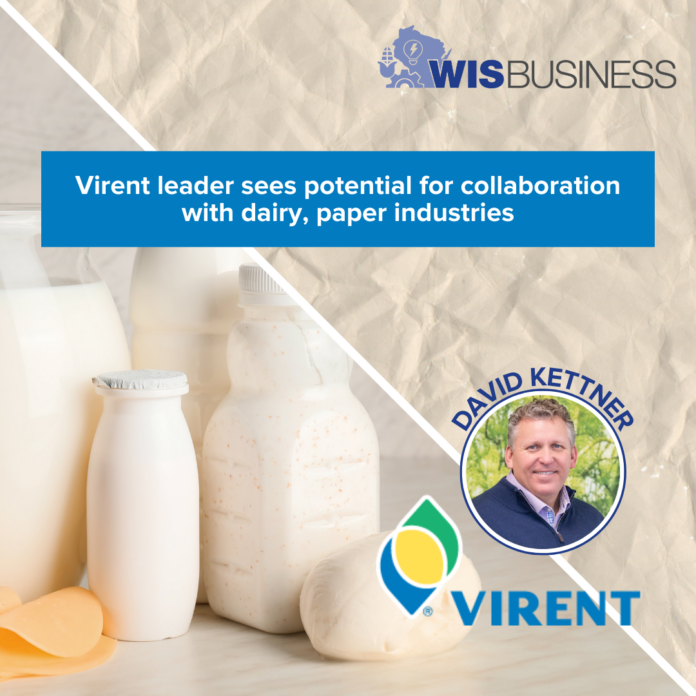The head of Madison-based Virent sees opportunities for partnerships within the state’s dairy and paper industries as the renewable fuels business continues to develop its technology.
Virent President and General Counsel Dave Kettner discussed the company’s trajectory during a recent Wisconsin Technology Council luncheon in Madison. Its demonstration plant in Madison can transform plant-based feedstocks into various fuels and chemicals through a process called bioforming.
The fuels Virent produces are largely identical to petroleum-based fuels, and can therefore be used in existing engines without the need for modification, according to Kettner’s presentation.
“The industry itself can move to 100% sustainable aviation fuel without interchanges in today’s infrastructure,” he said Tuesday.
The company’s production process relies on plant-based sugars in the form of carbohydrates, he explained. That can come from crops like corn or more wood-like biomass.
“So everything that’s coming out of the ground, for the most part in the state, we can turn into a biofuel or a chemical product, and we can do so while also complementing the production of food,” he said.
Tech Council President Tom Still said this process could use materials that would otherwise be wasted at farms in the state. Kettner agreed, noting Wisconsin’s dairy industry “is an untapped area” for capturing renewable natural gas from manure waste as well. He also pointed to waste from the state’s paper industry as another underused resource.
“The paper industry is very good at taking wood material and breaking it down into its individual products,” he said. “We can help with that from an industry standpoint. What they don’t use, we can use.”
The company late last year announced two successful demonstration flights using its sustainable aviation fuel, including the first transatlantic flight using this fuel by a commercial airline, Virgin Atlantic. The eight-hour flight in November went from London to New York, and came about a week after Virent’s fuel was used in an Emirates Airline demonstration flight in Dubai.
Kettner on Tuesday shared data from the second flight, showing particulate matter emissions were reduced by up to 80% both on the ground and in flight due to using the renewable fuel.
“They burned less fuel on the way over … so greater efficiencies, better performance on the engine as a whole,” he said. “So what we’ve been able to do, working with others in the industry, is to tailor a perfect jet fuel, or near-perfect jet fuel, that meets a lot of the environmental demands while also servicing the industry.”
Still, the company’s path forward isn’t without its challenges, Kettner said. For one, its main competition is the global petroleum industry.
“They’ve been around for 140, 150 years. They figured out how to squeeze every single ounce of value out of a barrel of oil. And they’ve done so in a way that has brought the cost down to something that we’re very comfortable with today,” he said.
By contrast, renewable fuels are just getting started, meaning they’re currently more expensive and less efficient to produce than the mainstream alternative. He predicts the cost for producing Virent’s fuel will come down over time to be competitive with oil, but adds “that’s decades away.”
“That’s where the biggest challenge is for the industry today, is for all of us to get together and figure out how do we move this promising opportunity,” he said. “When you look at emissions from jet fuel alone make up 5% of the global basis. Technology exists for purposes of wiping that out, and moving everything to sustainable aviation fuel.”
See more on the company’s technology.






